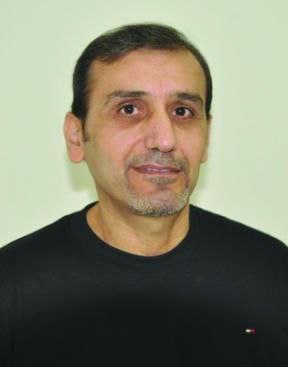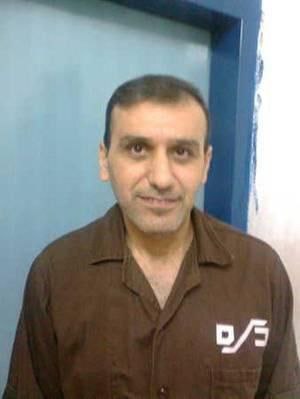PFLP Leader Ahed Abu Ghalama Transferred to Gilboa Prison After Zionist Guards Assault


Ahed Abu Ghalama, a prominent member of the Popular Front for the Liberation of Palestine (PFLP) political bureau and head of its prison branch, has been transferred from Ofer Prison to Gilboa Prison after enduring a brutal assault by Zionist prison guards. The transfer, which took place under severe circumstances, left Abu Ghalama severely beaten. As one of the most significant leaders of the prisoners' movement, his treatment has sparked widespread outrage and renewed calls for international attention to the plight of Palestinian political prisoners.
Abu Ghalama, who previously served as the head of the PFLP’s military wing in the West Bank, is known for his role in organizing the operation that led to the assassination of Zionist minister Rehavam Ze’evi on October 17th, 2001, in Al-Quds. This operation was a direct response to the killing of PFLP General Secretary Abu Ali Mustafa. His leadership and legacy in the Palestinian resistance have made him a symbol of the struggle for Palestinian rights and freedom.
In 2006, Abu Ghalama was abducted by the Palestinian Authority along with PFLP Secretary-General Ahmed Sa’adat. Afterward, the PA handed him over to Israeli authorities. Abu Ghalama was sentenced to life imprisonment plus five additional years. Over the years, he has faced severe conditions, including solitary confinement, restrictions, and regular assaults. Despite these challenges, Abu Ghalama remains a resilient figure within the prisoners' movement.
Ahed Abu Ghalama’s involvement in a hunger strike in 2012 alongside 19 other leaders, where they fought for better conditions, eventually led to his removal from solitary confinement. However, his detention remains a constant struggle, marked by physical and psychological abuse. Most recently, after enduring years of harsh conditions, he was once again placed in solitary confinement in May 2023, alongside Sa’adat, after being returned to a high-security detention facility.
The recent assault on Abu Ghalama underscores the growing concerns over the treatment of Palestinian political prisoners, many of whom continue to face systematic abuse under Israeli occupation. His mother, Sebtia, passed away in February 2024, adding another layer of emotional distress to his ongoing incarceration. As calls for justice intensify, Abu Ghalama’s case remains a focal point for advocacy groups highlighting human rights violations in Israeli prisons.
Abu Ghalama's transfer to Gilboa Prison, combined with the violence he faced, has sparked renewed condemnation from Palestinian organizations and international human rights groups. His continued resistance and leadership, despite enduring unimaginable hardship, have made him a symbol of perseverance in the fight for Palestinian liberation. As the world watches, the call for his release and the end of brutal prison conditions grows louder.

